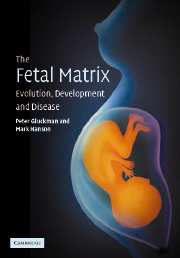New discoveries reveal how crucial interactions which determine our destiny
occur before birth, when our genes interact with their environment as the
embryo and fetus develop. These processes - in the matrix of the womb - are
evolutionary echoes of mechanisms which allowed our hunter-gatherer ancestors
to survive. These exciting insights into predictive adaptive responses suggest
new ways of protecting the health of the fetus, infant and adult. If
inappropriate they can trigger obesity, diabetes and heart disease, formerly
thought to result solely from adult lifestyle. The new concepts in this book
are crucial to understanding the daunting public health burden in societies
undergoing rapid transition from poverty to affluence. They add an important
new dimension to evolutionary theory. Synthesising developmental biology,
evolutionary history, medical science, public health and social policy, this is
a ground-breaking and fascinating account by two of the world’s leading
pioneers in this important emerging field.
Contents
1. Shaping our destiny: genes, environment and their interactions; 2. Mother
and fetus; 3. Fetal choices; 4. Predictive adaptive responses and human
diseases; 5. Obesity, diabetes and other diseases; 6. The biology of predictive
adaptive responses; 7. Predictive adaptive responses - critical processes in
evolution; 8. Evolutionary echoes and the human camel; 9. Improving human
health; 10. Fetal futures.
Review
'Gluckman and Hanson argue that the interaction between mammals and their
environment while in the womb irreversibly affects their future development,
what they call a 'predictive adaptive response.' It also has huge health
implications for the rest of their lives. The authors are persuasive, and their
findings have relevance for health policy everywhere. If maternal well-being
affects the lifelong health of the offspring, it makes good sense to ensure
that mothers are always well cared for.' New Scientist


